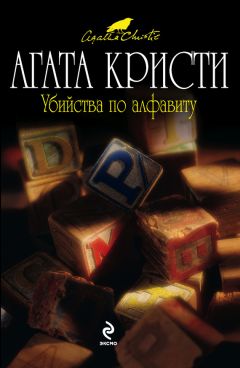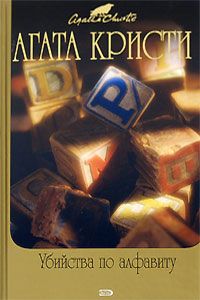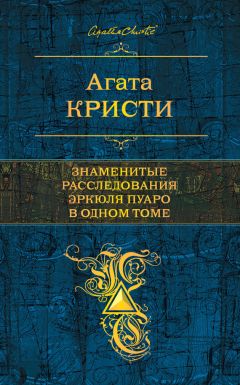Agatha Christie - Английский язык с Агатой Кристи. Убийства по алфавиту
corridor [ˈkɔrɪdǝ], sleeper [ˈsli:pǝ], bash [bæʃ]
Just as the train was leaving the station we saw a man running down the platform. He reached the inspector's window and called up something.
As the train drew out of the station Poirot and I hurried along the corridor and tapped on the door of the inspector's sleeper.
"You have news — yes?" demanded Poirot.
Crome said quietly: "It's about as bad as it can be. Sir Carmichael Clarke has been found with his head bashed in."
Sir Carmichael Clarke (сэр Кармайкл Кларк), although his name was not very well known to the general public (хотя его имя не было хорошо известно широкой публике), was a man of some eminence (был человеком, занимающим довольно высокое положение; eminence — высота; высокое положение; высокий чин). He had been in his time a very well-known throat specialist (он был в свое время хорошо известным специалистом-отоларингологом: «специалистом по горлу»). Retiring from his profession (выйдя в отставку), very comfortably off (весьма обеспеченный; well-off — богатый, зажиточный, обеспеченный, состоятельный; comfortably — уютно), he had been able to indulge (он смог погрузиться; to indulge — потворствовать, потакать; удовлетворять свои желания) what had been one of the chief passions of his life (/в то/, что было одной из главных страстей его жизни) — a collection of Chinese pottery and porcelain (собирание китайской керамики и фарфора).
A few years later (несколько лет спустя), inheriting a considerable fortune from an elderly uncle (унаследовав значительное состояние от своего пожилого дяди), he had been able to indulge his passion to the full (он смог полностью отдаться своей страсти), and he was now the possessor of one of the best-known collections of Chinese art (и теперь он был владельцем одной из наиболее известных коллекций китайского искусства). He was married but had no children (он был женат, но не имел детей), and lived in a house he had built for himself near the Devon coast (и жил в доме, который он себе построил на девонском побережье), only coming to London on rare occasions (приезжая в Лондон только по редким случаям) such as when some important sale was on (таким, как серьезные сделки: «когда важная продажа была в разгаре»).
eminence [ˈemɪnǝns], porcelain [ˈpɔ:s(ǝ)lɪn], inherit [ɪnˈherɪt]
Sir Carmichael Clarke, although his name was not very well known to the general public, was a man of some eminence. He had been in his time a very well-known throat specialist. Retiring from his profession, very comfortably off, he had been able to indulge what had been one of I the chief passions of his life — a collection of Chinese pottery and porcelain.
A few years later, inheriting a considerable fortune from an elderly uncle, he had been able to indulge his passion to the full, and he was now the possessor of one of the best-known collections of Chinese art. He was married but had no children, and lived in a house he had built for himself near the Devon coast, only coming to London on rare occasions such as when some important sale was on.
It did not require much reflection to realize (это не требовало больших раздумий, чтобы понять) that his death (что его смерть), following that of the young and pretty Betty Barnard (последовавшая за /смертью/ молодой и красивой Бетти Барнард), would provide the best newspaper sensation in years (обеспечит самую большую газетную сенсацию за /многие/ годы). The fact that it was August (факт, что был август) and that the papers were hard up for subject matter (и что газеты нуждались в предмете /обсуждения/; to be hard up for — не хватать, нуждаться) would make matters worse (сделает дело /только/ хуже).
"Eh bien," said Poirot (фр. ну ладно). "It is possible (возможно) that publicity may do (что публичность может сделать /то/) what private efforts have failed to do (с чем частные усилия не справились). The whole country now will be looking for A.B.C. (вся страна теперь будет искать Эй-би-си)."
provide [prǝˈvaɪd], private [ˈpraɪvɪt], effort [ˈefǝt]
It did not require much reflection to realize that his death, following that of the young and pretty Betty Barnard, would provide the best newspaper sensation in years. The fact that it was August and that the papers were hard up for subject matter would make matters worse.
"Eh bien," said Poirot. "It is possible that publicity may do what private efforts have failed to do. The whole country now will be looking for A.B.C.."
"Unfortunately," I said (к сожалению: «несчастливо = к несчастью»), "that's what he wants (это то, что он хочет)."
"True (верно). But it may (но это может), all the same (все-таки), be his undoing (быть его уничтожением). Gratified by success (довольный успехом; to gratify — уст. вознаграждать; удовлетворять; доставлять удовольствие; радовать), he may become careless (он, возможно, станет беспечным: «он может стать беспечным») … That is what I hope (это /то, на/ что я надеюсь) — that he may be drunk with his own cleverness (что он, возможно, будет в упоении от собственной хитрости/ловкости; to drink — пить; drunk — пьяный, опьяненный; cleverness — ум, даровитость, талантливость; мастерство, умение, сноровка)."
"How odd all this is, Poirot," I exclaimed (как странно все это, Пуаро, — я воскликнул), struck suddenly by an idea (пораженный неожиданной идеей). "Do you know (вы знаете), this is the first crime of this kind (это есть первое преступление этого вида) that you and I have worked on together (над которым вы и я работаем вместе)? All our murders have been (все наши убийства были) — well, private murders (ну, частными преступлениями), so to speak (так сказать)."
undoing [ʌnˈdu:ɪŋ], gratify [ˈɡrætɪfaɪ], suddenly [ˈsʌd(ǝ)nlɪ]
"Unfortunately," I said, "that's what he wants."
"True. But it may, all the same, be his undoing. Gratified by success, he may become careless … That is what I hope — that he may be drunk with his own cleverness."
"How odd all this is, Poirot," I exclaimed, struck suddenly by an idea. "Do you know, this is the first crime of this kind that you and I have worked on together? All our murders have been — well, private murders, so to speak."
"You are quite right, my friend (вы совершенно правы, мой друг). Always (всегда), up to now (до сих пор), it has fallen out lot to work from the inside (выпадало много работать изнутри). It has been the history of the victim that was important (была важна именно история жертвы). The important points have been (важными вопросами были): 'Who benefited by the death (кому была выгодна смерть: «кто извлек выгоду от этой смерти»)? What opportunities had those round him (какие возможности имели те, /кто/ вокруг жертвы), to commit the crime (чтобы совершить преступление)?' It has always been the 'crime intime' (это всегда было фр. «интимное преступление»). Here (здесь), for the first time in our association (в первые за время нашего сотрудничества), it is cold-blooded (это хладнокровное), impersonal murder (безличное убийство). Murder from the outside (убийство извне)."
I shivered (я вздрогнул). "It's rather horrible (это совершенно ужасно; rather — очень, весьма; в значительной степени) …"
benefit [ˈbenǝfɪt], association [ǝˌsǝʋsɪˈeɪʃ(ǝ)n], cold-blooded [ˌkǝʋldˈblʌdɪd]
"You are quite right, my friend. Always, up to now, it has fallen our lot to work from the inside. It has been the history of the victim that was important. The important points have been: 'Who benefited by the death? What opportunities had those round him to commit the crime?' It has always been the 'crime intime.' Here, for the first time in our association, it is cold-blooded, impersonal murder. Murder from the outside."
I shivered. "It's rather horrible …"
"Yes. I felt from the first (я чувствовал с первой /минуты/), when I had the original letter (когда я получил первоначальное письмо), that there was something wrong (что там было что-то неправильное) — misshapen (уродливое; shape — форма) —"




